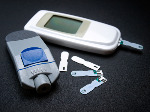 Technology has helped in developing the treatments needed to address many health conditions. In the case of type 1 diabetes, researchers may have a new way to combat the disease by developing an external artificial pancreas. In this line, the world’s first clinical trial for three new alternative treatments for type 1 diabetes was conducted by researchers at the University of Montreal and the ICRM. The said trial was able to confirm that an external artificial pancreas can be an effective treatment in glucose control and reducing hypoglycemia risk compared to current conventional treatments for treating type 1 diabetes.
Technology has helped in developing the treatments needed to address many health conditions. In the case of type 1 diabetes, researchers may have a new way to combat the disease by developing an external artificial pancreas. In this line, the world’s first clinical trial for three new alternative treatments for type 1 diabetes was conducted by researchers at the University of Montreal and the ICRM. The said trial was able to confirm that an external artificial pancreas can be an effective treatment in glucose control and reducing hypoglycemia risk compared to current conventional treatments for treating type 1 diabetes.
Type 1 diabetes is a chronic disease that can lead to vision loss and cardiovascular disease. Insulin therapy is the most conventional treatment currently used to address the disease. It is important for patients to ensure that their blood glucose levels always remain within range in order to prevent serious long term complications. Current therapy involves using an insulin pump to directly provide insulin into the bloodstream whenever blood glucose levels spike up. The external artificial pancreas works by automating the therapy of providing insulin when the patient needs it.
The external artificial pancreas is an automated system that helps stimulate the normal pancreas by helping it adapt through insulin delivery based on changes in glucose levels. There are two configurations that researchers are testing- one that delivers only insulin and another that can deliver both insulin and glucagon. Insulin is the hormone that helps lower blood glucose levels while glucagon works by raising it.
According to Dr. Remi Rabasa-Lhoret, Director of the Obesity, Metabolism and Diabetes research clinic at the IRCM and professor at the University of Montreal’s Department of Nutrition and the lead researcher of the study, “Our clinical trial was the first to compare these two configurations of the artificial pancreas with the conventional diabetes treatment using an insulin pump. We wanted to determine the usefulness of glucagon in the artificial pancreas, especially to prevent hypoglycemia, which remains the major barrier to reaching glycemic targets.”
According to Ahmad Haidar, an engineer and first author of the study and a postdoctoral fellow in Dr. Rabasa-Lhoret’s research unit at the IRCM, “Our study confirms that both artificial pancreas systems improve glucose control and reduce the risk of hypoglycemia compared to conventional pump therapy. In addition, we found that the dual-hormone artificial pancreas provides additional reduction in hypoglycemia compared to the single-hormone system.”
The researchers are planning further clinical trials to determine how effective the artificial pancreas can be for longer periods and used by a larger batch of patients. According to the researchers the technology may be available commercially in five to seven years. Results of the trial are published in the scientific journal The Lancet Diabetes & Endocrinology.
Source: Universite de Montreal. “Artificial pancreas shown to improve treatment of type 1 diabetes.” ScienceDaily. ScienceDaily, 26 November 2014. www.sciencedaily.com/releases/2014/11/141126185046.htm
Tags: artificial pancreas, blood glucose, clinical trial, Diabetes News, diabetes study, external artificial pancreas, glucose levels, type 1 diabetes treatment